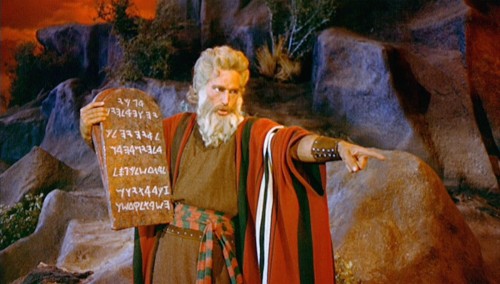The title of this post alone may have already made me a Quaker heretic, but I hope you’ll hang with me on this.
One of the unspoken rules of the Quaker tradition is that you’re not allowed to admit that you have a clear plan. According to this school of thought, any strongly-held, long-term planning is dangerous because it draws us away from our sense of immediate dependence on God. If we think we’ve got things figured out, we’re almost certainly wrong. What’s worse, we’ve set up a false idol; our ideas of what should happen become more important than how the Spirit is leading us at any given moment.
This tendency against advance planning and rational thought has been so intense in the Quaker community that many old-time Quakers referred to the Devil as the Reasoner. George Fox, in one of his most beautiful and profound epistles, urges his readers: Do not think, but submit [to God].
George had a point. There is a kind of thinking that traps us, makes us fearful, causes us to trust our own strength rather than resting in the presence of God. George and his fellow Quaker evangelists had seen quite clearly how well this fallen human logic stands against the working of the Holy Spirit in our lives.
Like every powerful social movement, though, Quakerism has lent itself to excesses. For centuries, there has been (and continues to be) a strong strain in the Quaker tradition that is suspicious of reason in general. According to this extreme interventionist view of God, human reason can only get in the way of divine inspiration. With the Spirit available to guide us, why should we think at all?
Quite frankly, this is crazy talk.
While I don’t deny the dangers of ego-driven thinking and decision-making, we Quakers have often held a profoundly mistaken understanding of human nature. We have been tempted to see the Holy Spirit as replacing human faculties, when God’s intention has always been to restore the whole creation – body, mind, and spirit – to its intended maturity and vitality in Christ.
There’s nothing in the Bible that leads me to believe God wants us to be Holy Spirit robots. I’m inclined to think that God had a purpose in giving us the ability to think, deliberate, and envision the future. We do our Creator a disservice when we fail to exercise our reason amidst a life of prayer and openness to the Holy Spirit.
What’s the practical import of all this? Quite simply: By embracing human reason as a good creation of God, we can openly make plans for the future, without pretending we don’t really know where we want to go. We don’t have to pretend we’re hearing whispers of the Spirit before we choose what color carpet to install. Just admit that you like green, and get on with it!
I’ve gained so much of value from the Quaker community, but one aspect of Friends culture that I have found crippling is our general inability to do long-range planning. I would encourage Friends – and anyone who comes from a faith background that is skeptical of our ability to plan for the future – to consider the possibility that God wants us to co-create the future with him.
Like Abraham, who (successfully) argued with God about the destruction of Sodom, we today are invited into a relationship with the Spirit that actively shapes the future. God wants our full participation.
This doesn’t mean we stop listening. It doesn’t mean God gets cut out of the decision-making process. But it does mean that we’re honest about what we really want. It means we’re clear and focused on what we need to do to move one step closer to attaining our objectives.
Will our plans always work out? Of course not. But we’ll be better off for making the attempt. Heck, we might even learn something! I can say from experience, God is really good at correcting me when I’m off on the wrong track.
What would it be like to be willing to trust your own judgment and leave the rest to God? What might change if we were willing to think and act boldly?
